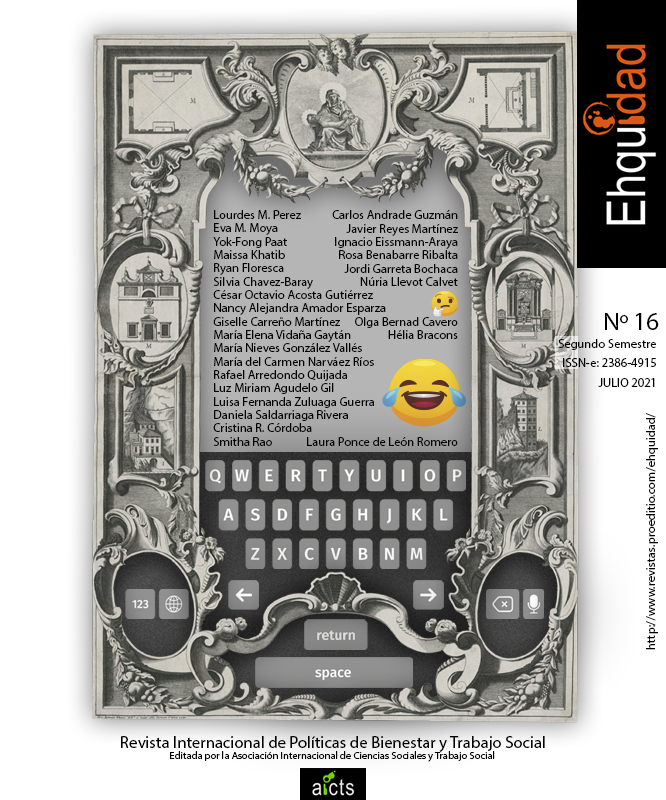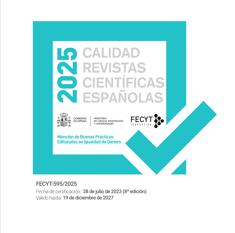Innovation Under Pressure? Education Authorities, Families, and Professionals and Educational Innovation
DOI:
https://doi.org/10.15257/ehquidad.2021.0019Keywords:
educational innovation; non-university education; survey/questionnaire; Lleida, Spain.Abstract
INTRODUCTION. Educational innovation is experiencing in Catalonia (Spain) what has begun to be called a "third pedagogical spring" that is leading to a significant increase in schools that make changes at different levels. METHOD. In this context, taking as a reference classifications of types of educational innovation (innovations in the formative structure, pedagogical, process, teacher training and the educational chain), the article presents the analysis of questionnaire carried out on the whole of the population (N) of non-university educational centers of the Territorial Education Service of Lleida (Catalonia). The intention of the questionnaire, and of the research project, was to detect: the degree of innovation of the non-university educational centers as a whole (differentiating the different educational levels), the degree to which this innovation is sustainable over time, the reasons that lead to innovation and its degree of success. In summary, the RESULTS indicate that there really is an "innovative spring" (although some levels of education are higher than others) that can be generalized, as other studies indicate, to the whole of Catalonia. This spring focuses mainly on the implementation of pedagogical actions, formative structure and with the educational chain and is motivated by the interest of improving results, motivation, learning ... of students. Although entering into DISCUSSION with other studies also responds to pressure from society and families for educational change.
Downloads
References
Afandi, M. & Effendi, M. (2019). Factors influencing teacher’s innovative behaviour. Creative Education Vol.10 No.12. DOI: 10.4236/ce.2019.1012213
Álvarez, M. (2010). Liderazgo compartido: Buenas prácticas de dirección escolar. Madrid: Wolters Kluwer.
Baena, S. Collet-Sabé, J., Garcia-Molsosa, M. & Manzano, M. (2020). More innovation, less inclusion? Debates and discussions regarding the intersectionality of innovation and inclusion in the Catalan school system: a position paper. International Journal of Inclusive Education, DOI: 10.1080/13603116.2020.1736653
Barrios-Arós, C., Camarero-Figuerola, M., Tierno-García, J. M., & Iranzo-García, P. (2015). Modelos y funciones de dirección escolar en España: el caso de Tarragona. Revista Iberoamericana de educación, 67(1), 89-106.
Bitan-Friedlander, N., Dreyfus, A., & Milgrom, Z. (2004). Types of “teachers in training”: the reactions of primary school science teachers when confronted with the task of implementing an innovation. Teaching and Teacher Education, 20(6), 607-619.
Carbonell, J. (2016). “Les tres primaveres pedagògiques”, Diari de l’Educació, 05-09-2016. Retrieved 30.05.19, from. http://diarieducacio.cat/les-tres-primaveres-pedagogiques/.
Chaminade, C., & Edquist, C. (2006). From theory to practice: the use of the systems of innovation approach in innovation policy. ?Papers in Innovation Studies?, 2005/2. Lund University, CIRCLE–Center for Innovation, Research and Competences in the Learning Economy, 1-47.
Ching, C.C., & Hursh, A. W. (2014). Peer modeling and innovation adoption among teachers in online professional development. Computers & Education, 73, 72-82. doi: 10.1016/j.compedu.2013.12.011.
Emo, W. (2015). Teachers’ motivations for initiating innovations. Journal of Educational Change, 16(2), 171-195. doi: 10.1007/s10833-015-9243-7.
Esteban, S. (2016). La renovación pedagógica en España: un movimiento social más allá del didactismo. Tendencias pedagógicas, 27, 259-284. doi: http://dx.doi.org/10.15366/tp2016.27.012.
Fundació Jaume Bofill. (2016). Alianzas para el éxito educativo. Orientaciones para desarrollar el proyecto Magnet. Barcelona, Fundació Jaume Bofill. Retrieved from. https://www.fbofill.cat/sites/default/files/Alianzasexitoeducativo_Magnet_151018.pdf.
García-Peñalvo, F. J. (2015). Mapa de tendencias en Innovación Educativa. Education in the knowledge society, 16(4), 6-23. Retrieved from http://dx.doi.org/10.14201/eks2015164623.
Garreta, J., Llevot, N. González, A., Domingo, J., Lladonosa, M., Macià, M., Benabarre, R., Mata, A. & Bernad, O. (2018). La situació educativa a les comarques de Lleida. Lleida, Universitat de Lleida & Diputació de Lleida (unpublished).
Greany, T., & Waterhouse, J. (2016). Rebels against the system: Leadership agency and curriculum innovation in the context of school autonomy and accountability in England. International Journal of Educational Management, 30(7), 1188-1206. doi: 10.1108/IJEM-11-2015-0148.
Haelermans, C., & Blank, J. L. (2012). Is a schools’ performance related to technical change?–A study on the relationship between innovations and secondary school productivity. Computers & Education, 59(3), 884-892.
Ketelaar, E., Beijaard, D., Boshuizen, H. P., & Den Brok, P. J. (2012). Teachers’ positioning towards an educational innovation in the light of ownership, sense-making and agency. Teaching and Teacher Education, 28(2), 273-282.
Kirkgöz, Y. (2008). Curriculum innovation in Turkish primary education. Asia?Pacific Journal of Teacher Education, 36(4), 309-322. doi: 10.1080/13598660802376204.
Knight, R. (2020). The tensions of innovation: experiences of teachers during a whole school pedagogical shift. Research Papers in Education, 35(2), 205-227. https://doi.org/10.1080/02671522.2019.1568527
Monarca, H., & González, N. F. (2016). El papel de la inspección educativa en los procesos de cambio. Cadernos de Pesquisa, 46(159), 212-233. doi: 10.1590/198053143374.
Moolenaar, N. M., Daly, A. J., Cornelissen, F., Liou, Y. H., Caillier, S., Riordan, R., Willson, K. & Cohen, N. A. (2014). Linked to innovation: Shaping an innovative climate through network intentionality and educators’ social network position. Journal of educational change, 15(2), 99-123. doi: 10.1007/s10833-014-9230-4.
Owston, R. (2007). Contextual factors that sustain innovative pedagogical practice using technology: An international study. Journal of educational Change, 8(1), 61-77. doi: 10.1007/s10833-006-9006-6.
Pascual, J. (2019). Innovación educativa: Un proceso construido sobre relaciones de poder. Revista Educación, Política y Sociedad 4.2, 9-29 https://docs.wixstatic.com/ugd/e5dccd_1d0ab7cb21a24455acadb55daaf72528.pdf
Sallán, J. G., Asparó, C. A., & Moreno, J. L. M. (2010). La innovación educativa en las comunidades autónomas de Cataluña y Aragón. Profesorado. Revista de currículum y formación de profesorado, 14(1), 215-236. Retrieved from http://www.ugr.es/local/recfpro/rev141ART11.pdf.
Stevens, R. J. (2004). Why do educational innovations come and go? What do we know? What can we do?. Teaching and teacher education, 20(4), 389-396.
Tejada, J., & De La Torre, S. (1995). La innovació als centres educatius de Catalunya. Educar, (19), 87-105.
Villa, A. (2019). Liderazgo: una clave para la innovación y el cambio educativo. Revista de Investigación Educativa, 37(2), 301-326. http://dx.doi.org/10.6018/rie.37.2.365461
Walder, A. M. (2017). Pedagogical Innovation in Canadian higher education: Professors’ perspectives on its effects on teaching and learning. Studies in Educational Evaluation, 54, 71-82.
Wilcox, K. C., & Lawson, H. A. (2018). Teachers’ agency, efficacy, engagement, and emotional resilience during policy innovation implementation. Journal of Educational Change, 19, 1-24. doi: 10.1007/s10833-017-9313-0.
Zubillaga, A. (2019). ¿Es el sistema español un sistema educativo innovador?. ICE, Revista De Economía, 910. https://doi.org/10.32796/ice.2019.910.6920












